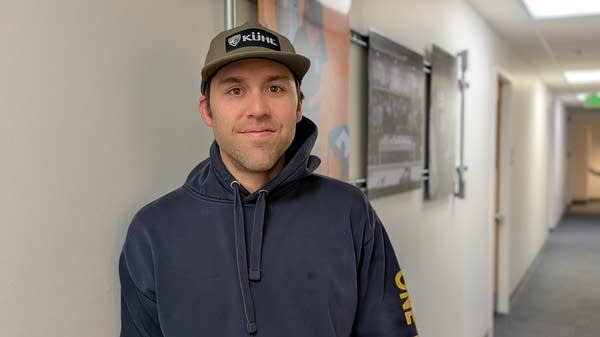How colleges come up with the price of admission
Reporting in The New York Times finds that schools are turning to little-known consultants to optimize how much they charge.

It's that time of year when college-bound high school seniors hear back about where they've been accepted and make the decision about what schools they'll attend. But under some scrutiny right now is the process by which colleges decide how much financial aid students will get and how much they'll ask incoming students and their families to pay. New York Times columnist Ron Lieber has been looking into this. He spoke with “Marketplace Morning Report” host David Brancaccio and the following is an edited transcript of their conversation.
David Brancaccio: It's like, I don't know, airline seats. When you go to college, the person next to you may be paying more or paying less. You found, Ron, that many campuses get outside help from for-profit companies to figure out what to charge your kid.
Ron Lieber: That’s correct, David. This has become a data game as it is in many other industries, for profit or not. Basically, they're trying to suck as much information as they can in whether it's information you tell them or information that they buy, say, after you take the SAT or the ACT, and you fill out a bunch of information on those forms before you take the test.
Brancaccio: I mean, they really want to know if you're going to come if they offer you the right package. That's probably the key thing, right?
Lieber: Right. That's the thing that they're ultimately trying to guess, right? They're cross tabulating your zip code, which is pretty good indication of your income, with your high school and the history of people coming to a college and staying at the college for four years from that school. They're looking at your grades to see the likelihood that you'll persist or flunk out or not, and then they're checking it against, have you shown up on campus? How much interest have you demonstrated? And the machines, the algorithms that these consultants rent to the colleges, sort of suck all of that in, do a bunch of computations and then essentially tell the college what offer to make and at what price.
Brancaccio: And parents and students would love to know more about whether it's fair. I mean, we would define that in different ways, but you don't want to think that the fix is in for someone else. And if you get the thin envelope in which the college says, “No, thank you,” you often will feel you were treated unfairly.
Lieber: Yeah, so as ever, David, I just want people to know what they are up against. And I think it's only fair to pull back the curtain and explain to readers and listeners what's happening and how these consulting firms and their clients talk about teenagers when they think that people like me and you and parents are not listening. And, one of the morals of the story is that the first offer may not necessarily be the best offer. Some computer somewhere is guessing and making some assumptions about you, and it's on you to go back to the school and say, “Actually, you got it wrong.”
Brancaccio: Well, that’s a profoundly important tip that you're offering there, right? You're saying that you don't just have to take what's in that envelope.
Lieber: Nope. So you have to be careful about it and polite. You know, if you're sitting on a handful of offers from schools that are roughly similar, and you've got one that's your first choice, but the net price for that one is higher than the others, it's worthwhile to go to the school and say, “Hey, did we do something wrong here? Because these other schools that you compete with are offering a little bit less, and I, or my kid, has actually done a lot of really cool stuff since they applied several months ago. Let me tell you about it. And is there a way we could come to a different conclusion here.”













